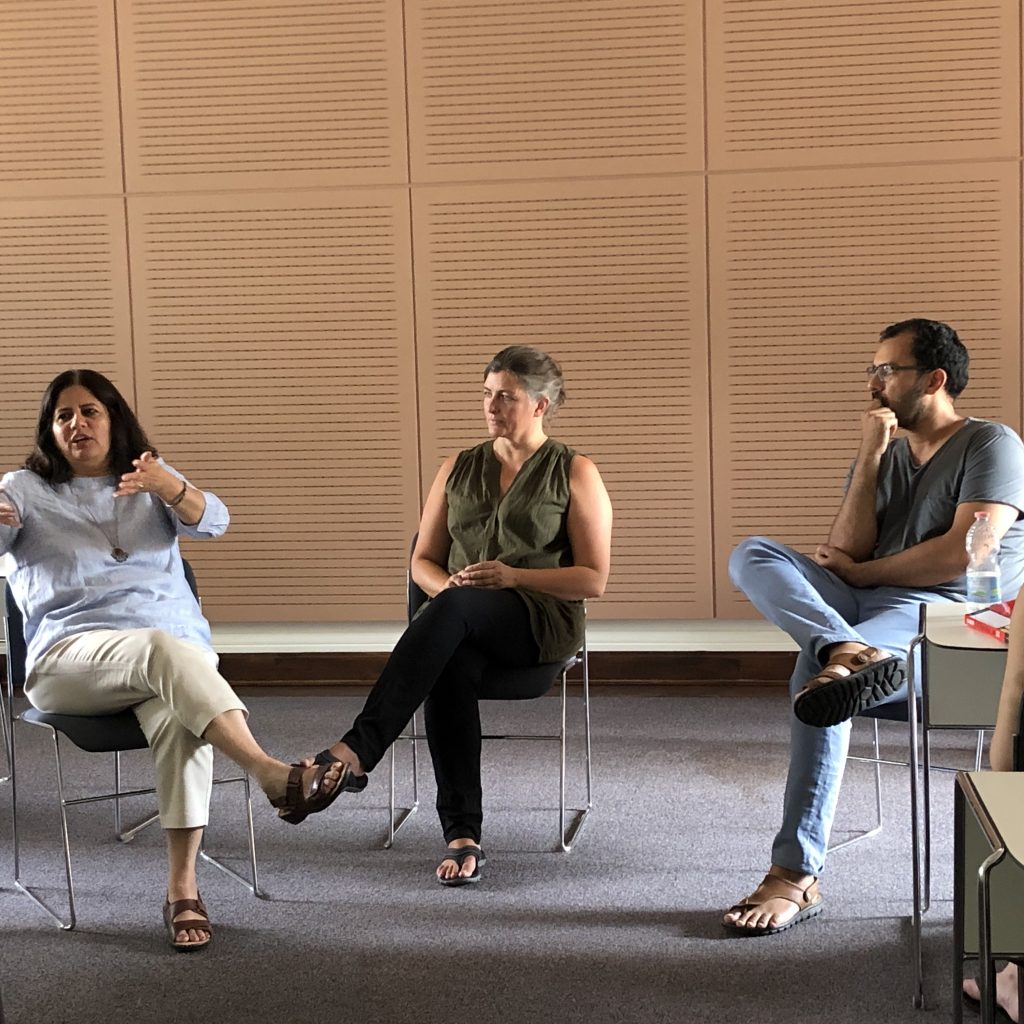SOAS Honours Human Rights Lawyer Vrinda Grover by Shailza Sharma
Advocate Vrinda Grover was honoured and awarded an honorary Doctorate of Laws at the July 2018 SOAS graduation ceremony for her decades of human rights activism and legal work. In presenting the citation for Vrinda Grover’s award at the ceremony, Dr. Navtej Purewal, Deputy Director of the South Asia Institute, stated: “Her work in interrogating the structures which produce violations and violence; in highlighting injustice in the face of agencies of power and the powerful; and in questioning authority, reflects the ethos of SOAS in so many ways. Her fight for justice, most notably where there is an element of state complicity, aggression, or impunity has made her contributions stand out far above the pulpit of procedural legal practice in India.”
Exemplary Work in the Field of Human Rights
Having witnessed the Emergency and the suspension of civil liberties during the mid-1970s under Indira Gandhi’s Congress as a school student, Vrinda observed at close quarters abuse of state power against her father a prominent lawyer. She developed a keen interest in law from a young age in the face of centralising political power. Regardless of which ruling political party has been in power, her persistence in holding the state accountable is a testament to her integrity and commitment to defending human rights and civil liberties through engagement with law.
She has appeared in landmark cases including the 1984 anti-Sikh riots in Delhi, the 1987 Hashimpura police custodial killings and in 2013 challenged the controversial ‘two finger test’ for survivors of sexual violence in India. She has contributed to the drafting of laws to protect women and children from domestic violence and sexual violence and has advocated for a law prohibiting torture. She also appeared for Adivasi leader Soni Sori, who was subjected to custodial sexual torture, chemical attack and falsely implicated in multiple criminal cases. Vrinda’ s research on the role of the criminal justice system in Bastar, a zone of armed conflict where there is a disproportionate and excessive incarceration of adivasis in prisons, formed part of the Justice Project South Asia publication titled, “The Adivasi Undertrial – A Prisoner of War: A Study of Undertrial Detainees in South Chhattisgarh”. She has also provided legal assistance to the Association of Parents of Disappeared Persons (APDP) in raising the issue of enforced disappearances and torture before Courts and the UN.
Interaction with students at SOAS
Taking time out from her busy schedule, Vrinda Grover engaged with academics and students at SOAS. In conversation with Dr. Gina Heathcote (School of Law) and Dr. Mayur Suresh (School of Law), she addressed the students at the SOAS Law Summer School.
Dr. Gina Heathcote posed a question to her on the use of international law to further human rights and women’s rights, within the Indian context. Recounting her experience of having witnessed a lot of social movements when she was growing up, Ms. Grover emphasised that change within the Indian context happens mostly through social movements. According to her, the engagement with international law by human rights movements or women’s movements had been limited due to criticisms of its imperial designs and intentions. However, after the 2002 Gujarat pogrom against Muslims there was a realisation that existing domestic law lacked the vocabulary to deal with the situation. Consequently, in a report issued by the Convention on the Elimination of All Forms of Discrimination against Women (CEDAW) the violence during the 2002 Gujarat riots led to denial of human rights of Muslim women.
Speaking on CEDAW, Ms. Grover pointed out that it is a convention that can be utilised as a good starting point to talk about women’s rights in India. While the Indian constitution guarantees fundamental rights to its citizens, in order for such guaranteed rights to enter the domain of family law international law can provide the language for a strategic and ethical entry point.
Speaking on the changes or processes that can be triggered on the ground by international law, she described the role of the Special Rapporteur in investigating the extra-judicial killings in the state of Manipur in India. In a country visit report issued in 2013, the Special Rapporteur on extrajudicial, summary or arbitrary executions, Christof Heyns highlighted that “the level of extrajudicial executions in this country [India] still raises serious concern. This includes deaths resulting from excessive use of force by security officers, and legislation that is permissive of such use of force and hampers accountability.” In order for the documentation to be provided to the Special Rapporteur, an association of civil society members in Manipur (i.e. Extra-Judicial Execution Victim Families Association) was formed. They came together and documented cases which could then be submitted to the Supreme Court for inquiry in the form of a writ petition. Consequently, in its judgment of July, 2016 the Supreme Court also recognized the ‘right to truth’ as articulated by the United Nations High Commissioner for Human Rights in the sixty-second session of the Human Rights Commission. All of this was triggered by a visit of the Special Rapporteur of the United Nations.
She concluded her engaging discussion by indicating that governments that ensure fulfilment of people’s rights are rare. Complete disengagement with governments on the questions of human rights is not useful. Therefore, in order for democracies to function for the people, it is crucial that we maintain a distance from governments in power at all times, while ensuring constant engagement and accountability on the questions of human rights.
Shailza is a lawyer based in New Delhi and is currently pursuing her Master’s in International Politics at SOAS. She is also an active member of the SOAS India Society.

